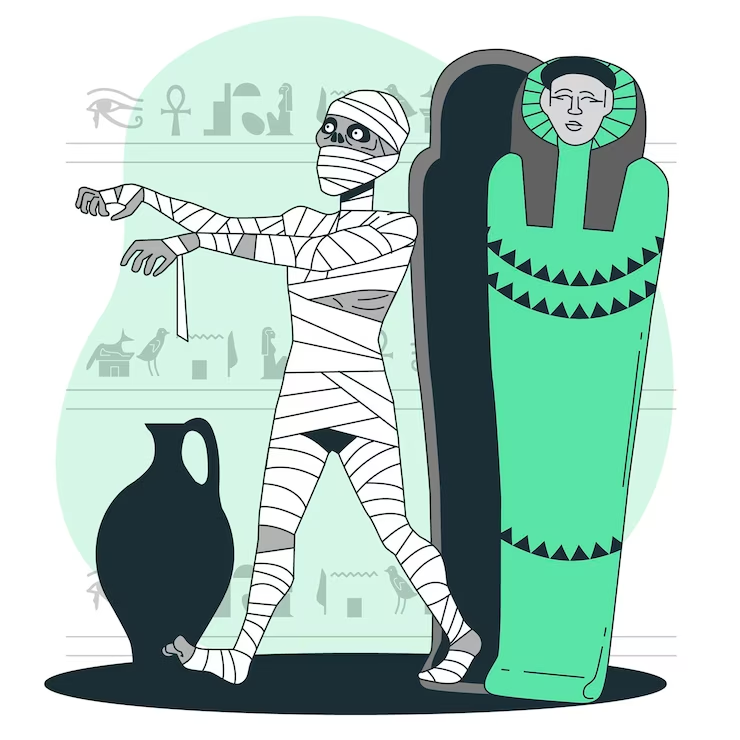The Psychology of Rationalizing Unhealthy Behaviors: A Look at Cognitive Dissonance

People illustrations by Storyset
When I was a child (about 8 or 10), I heard the statement, "smokers are liable to die young." I used to always think that those who smoked did not know about this. I wasn't as much of an informed decision soldier as I am now, but I hoped that somehow these people would find out that this was the case.
Now I'm older, and I know it's written on the pack of the cigarettes, and that most, if not all, of the smokers who have been doing it for years know about this fact. At the gym, I had conversations with one bodybuilder who was into it and was willing to defend his decision openly...his reasons all sounded similar to the doctors who I knew from the first year of college who were not smokers and had become smokers.
"Something must kill a man," which is true in a way...everyone will die, but that was not what the conversation was about. It was more along the lines of, you are killing yourself with something, and everyone knows it, even some kids, but your response is that we all are in ways we don't know about.
Yesterday, I had this conversation about cognitive dissonance with someone in my last post about cohabitation and how most cases of cohabitation do not lead to long-term marriages or relationships. In many instances, those who defend cohabitation sound like those who defend smoking...and I know this seems like a stretch, but...hear me out.
I speak with people all the time, and I know this is the general notion about love, sex, and lasting relationships. The notion is that some people hold to rationalize dating and cohabitation is that if you find out that the person is not good for you, that is a good relationship outcome. Meanwhile, in reality, you shouldn't have gone into that with the person in the first place.
People try to justify the end of the relationship when the case was, "cohabitors are liable to have short relationships."
The History

People illustrations by Storyset
The theory behind people knowing what the truth is and defending what they choose to do is called cognitive dissonance, and we all try in our ways to do it.
For everything most people do or believe that is not true, morally wrong, or reprehensible, so long as we are sane, we will come up with ways to defend it, or else we won't be able to live with the discomfort of believing it or doing it.
For smokers, it dates back to 1966 when cigarette packs would write "Cigarette Smoking May be Hazardous to Your Health." In those times, smokers saw it as socially acceptable, especially among friends. It was a form of stress relief, and some had been addicted all the while.
Others saw it as a form of enjoyment or pleasure, and some believed that smoking controlled their appetite and would help them lose weight.
In the 1970s, the statement on the packs of cigarettes had changed to "The Surgeon General Has Determined That Cigarette Smoking Is Dangerous to Your Health." At this time also, new reasons as to why smoking was tolerable, even though it caused cancer, was that it helped them focus and reduce social anxiety.
The Theory

People illustrations by Storyset
This is a psychological phenomenon that happens when a person has two or more beliefs, values, or attitudes that contradict each other or when their behavior is inconsistent with their belief or value.
Those who engage in unhealthy behavior knowing it is not good for them can have cognitive dissonance when they know their behavior is at odds with living a healthy lifestyle.
When someone seeks to reduce cognitive dissonance, they may follow different routes of minimizing the health importance or justifying it with the stress of work or the like.
They will go through the pains to **rationalize their beliefs **by researching ways in which their behavior can be beneficial.
In a study, they found that people who smoke and had never tried to stop will make reasons to justify their smoking. If they try to quit smoking, they will have fewer reasons for smoking compared to when they used to smoke.
In this study, they also found that if they try to stop and go back to smoking again, they have new justifications for smoking. This was more likely for reasons that make smoking feel useful rather than reasons that made smoking seem life-threatening, in line with cognitive dissonance theory.
Most people who find themselves at odds with their belief this way find it hard to break free from the mindset and may require social support, goal-setting, and taking up new coping strategies to deal with stress and other triggers for unhealthy behavior.
For Those Involved

People illustrations by Storyset
The best way to move forward is not to find new ways to rationalize your behavior knowing well that it is detrimental to health, wealth, or relationships. You should be on the path to doing what is better for yourself as much as you can.
Not doing so will put you at odds with yourself, and I get it, doing what is right might not feel feasible in your current situation. But knowing that you want to do what is right for the situation is the right mindset to have.
Do you struggle with some of these behaviors that you know are not good for you? Do you wish you had someone to talk to about it?
Conclusion
In conclusion, cognitive dissonance is a psychological phenomenon that happens when a person has two or more beliefs, values, or attitudes that contradict each other or when their behavior is inconsistent with their belief or value. This is a common occurrence among smokers who know that smoking is harmful to their health, but still find ways to rationalize their behavior.
It is not just smokers who experience cognitive dissonance, but also people who engage in other unhealthy behaviors or hold beliefs that are not in line with reality. To reduce cognitive dissonance, people may follow different routes of minimizing the importance of the conflicting belief or justifying their behavior.
However, it is important to recognize when one is experiencing cognitive dissonance and take steps to address it. This may involve seeking social support, setting goals, and taking up new coping strategies to deal with stress and other triggers for unhealthy behavior.
Ultimately, it is important to do what is better for oneself as much as possible and strive towards a healthy, balanced lifestyle. If you find yourself struggling with behaviors that you know are not good for you, it may be helpful to talk to someone about it and seek guidance on how to break free from the mindset of cognitive dissonance.

Inkscape.org
Have you ever experienced cognitive dissonance? How did you deal with it? How do you think people can break free from the mindset of rationalizing unhealthy behavior?
What are some coping strategies that have worked for you when dealing with stress or triggers for unhealthy behavior? Do you think it's possible for people to change their beliefs or behaviors even when they are at odds with what they've been doing for a long time? How difficult do you think this is?
In what ways do you think the media, society, or culture influence people's beliefs and behaviors? How much of it is conscious versus subconscious?
Thanks for your contribution to the STEMsocial community. Feel free to join us on discord to get to know the rest of us!
Please consider delegating to the @stemsocial account (85% of the curation rewards are returned).
You may also include @stemsocial as a beneficiary of the rewards of this post to get a stronger support.
Congratulations @ebingo! You have completed the following achievement on the Hive blockchain And have been rewarded with New badge(s)
Your next target is to reach 130000 upvotes.
You can view your badges on your board and compare yourself to others in the Ranking
If you no longer want to receive notifications, reply to this comment with the word
STOPCheck out our last posts:
Support the HiveBuzz project. Vote for our proposal!
Yeah, I've heard all those excuses galore. "I prefer to die 10 years younger but live happily", or "the doctor says I have the heart of a 20-year-old", etc. Well, all those sportspeople who suddenly die at 20, also had the heart of a 20-year-old. Not everything can be seen with a basic checkup.
Plato stated that no person knowingly does evil, and I tend to agree. I think, at some deep level, smokers really do not understand that smoking is harmful.